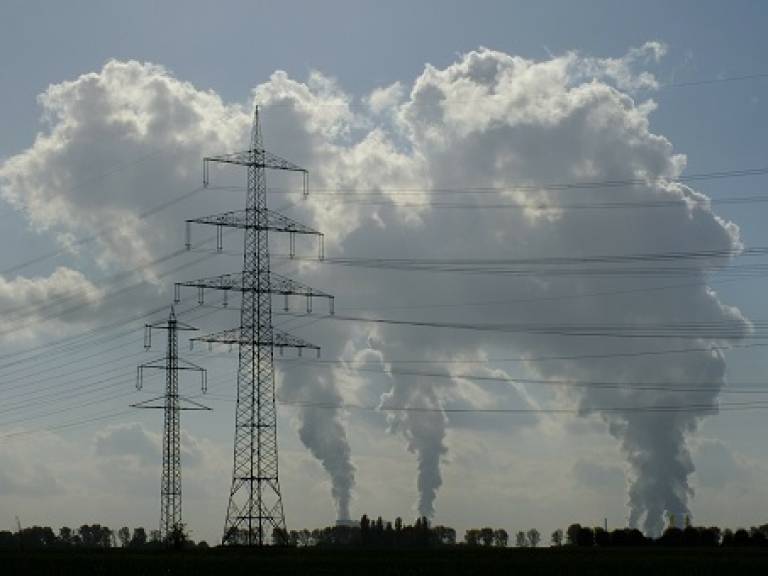Deep emission reductions achievable by 2050 to put the world on course to meet climate objectives
25 September 2015

Limiting global warming to 2 °C can still be achieved, a new international report outlining how countries can transition to low carbon energy systems has found.
The recently published 2015 Deep Decarbonization Pathways Project (DDPP) synthesis report, details analysis by the 16 largest emitting countries, accounting for approximately 75% of global emissions. The report shows that the transition pathways proposed to 2050, which crucially take account of national circumstances, can deliver CO2 reductions 48-57% below 2010 levels. This can be done through strong efforts to improve the efficiency of energy use, decarbonisation of the energy supply e.g. low carbon electricity and fuel switching to low carbon fuels.
DDPP synthesis report lead author, Steve Pye, Senior Research Associate at UCL-Energy, said: “Crucially, these pathways do not curtail economic growth. They account for expected average population growth of 17% and ag¬gregate GDP growth of 250%, an average rate of 3.1% per year. Analysis also suggests that the incremental costs of delivering these pathways is manageable, with strong economic opportunities in low carbon technology sectors”.
The analysis is timely in the lead up to COP21 taking place in December 2015. While countries provide intended commitments via intended nationally determined contributors, these pathways provide the vision and supporting analysis of what will be needed in the longer term. This includes the necessary large-scale technology deployment, strong opportunities for investment and the robust policy package needed to make it happen. Beyond Paris, they provide the scientific basis for considering stronger ambition that will be necessary to meet the global climate goal.
Further work is needed to expand pathway analysis to countries not included in the current DDPP. It is particularly important to understand potential reductions in those countries, and to get a more comprehensive overview of cumulative global emissions out to 2050. More analysis is needed to explore the additional potential that exists in the published pathways to increase the likelihood of staying within the 2°C warming limit.
The UK was one of the countries contributing to this research. The UK analysis (hyperlinked) was undertaken by a team of researchers from the UCL Energy Institute.
The synthesis report will be presented at a UCL-Energy evening seminar being held on Tuesday 6th October. Register to attend here.
Read the report on the project website
Further information on DDPP:
The Deep Decarbonization Pathways Project (DDPP) is a global collaboration of energy research teams charting practical pathways to deeply reducing greenhouse gas emissions in their own countries. It is predicated on taking seriously what is needed to limit global warming to 2°C or less.
The DDPP framework has been developed and utilized by a consortium led by The Institute for Sustainable Development and International Relations (IDDRI) and the Sustainable Development Solutions Network (SDSN). It currently consists of scientific research teams from leading research institutions in sixteen of the world’s largest greenhouse gas emitting countries.
The initial results of this collaboration are reflected in reports on deep decarbonization pathways for Australia, Brazil, Canada, China, France, Germany, India, Indonesia, Italy, Japan Mexico, Russia, South Africa, South Korea, United Kingdom and United States.
Photo credit: ADD Pixabay CC0 Public Domain
 Close
Close

